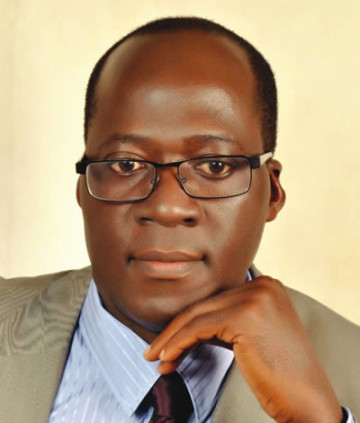How to keep Nigerians alive for longer
The Government has a huge task to improve the health sector. The major end-point and measurable outcome will be an increase in the life expectancy of Nigerians: keeping us alive and in good health for longer.
A serious government
The government has started this task by consulting widely. The consultations on many fronts — home and abroad — spearheaded by the Vice-President, Prof. Oluyemi Osinbajo, is bound to yield fruit. Secondly, the government supported the Diaspora Day which took place last week in Abuja. The Diaspora is integral in these efforts and accumulating a critical mass of health care professionals from the Diaspora will move the initiative forward.
The fallacy of strikes
On the home front, we need to put a stop to strike actions by health care groups. Any health care practitioner who feels that whatever was achieved with strikes is worth the life of a single Nigerian is a comedian. So, the resounding silence that met last week’s article may reflect the shame of health care practitioners on the issue of strikes.
Nigerians are tired of strike actions and the many graves littered all over the country remain a strong testimony to the fallacy of strikes. The government is asking for a two to three-year period of amnesty from strikes. One hopes that the relevant bodies understand and appreciate this important request.
More graves are occasioned by malaria, cancer, strokes and hospital-acquired deaths. Let us stay on hospital-acquired deaths for a moment. The culture of putting patients first has not really permeated through our health institutions. Some doctors, pharmacists, physiotherapists and nurses are killing inadvertently.
The majority of deaths are mistakes due to lack of experience, materials, poor communication and fracture of due diligence in care. Women are dying daily following botched fibroid operations, during pregnancy and delivery and other avoidable situations.
Fake drugs, fake doctors, fake service providers and even fake patients abound, creating gargantuan problems in many areas. The lack of regulation and accountability due to weak institutions, a culture of nepotism — old boy’s network — does not help.
Bad nurses and doctors are being protected within the system and can move to new places to re-establish services.
Establishing strong institutions to deal with hospital-acquired deaths and disability will save lives and lead to reduction in mortality in Nigeria. We need to strengthen our institutions for registering all health facilities: regulatory bodies such as the Medical and Dental Council of Nigeria and affiliate bodies responsible for law and order, including the judiciary. The fear of punitive measures and possible jail time would deter many and sanitise the health sector.
Cancer
Cancer is a big deal that is poorly treated in Nigeria. There is paucity of cancer specialists and equipment. The only working unit in Nigeria (University of Benin Teaching Hospital) out of eight cancer centres, is currently offline: equipment requires servicing! Yet, there is a procession of patients requiring radiotherapy services.
Since radiotherapy and chemotherapy are not available privately and pretty expensive abroad, you can imagine what is happening to cancer patients: more graves to dig!
Cancer care is not in the remit of private business, as it is a social service and not profitable. It has to be established by government and supported by private enterprise. Buildings and equipment alone will not lead to better cancer therapy. The right personnel, trained and fully equipped, is vital; otherwise, a fool with a tool remains a fool.
Malaria
Malaria is a preventable, treatable disease, yet a child dies of malaria every 30 seconds. The issue surrounding malaria though, is more than just mosquitoes. Misdiagnosis, fake drugs and substandard treatment paradigms are wrecking havoc. Poverty increases the risk of malaria, since those in poverty do not have the financial capacities to prevent or treat the disease.
However, malaria is not just a disease commonly associated with poverty: some evidence suggests that it is also a cause of poverty and a major hindrance to economic development.
The government must enroll everyone into the National Health Insurance Scheme. Everyone, especially the rich, famous and corporate organisations! Then, the fortunate few can save the poor majority.
“The moral test of government is how it treats those who are in the dawn of life — the children; those who are in the twilight of life — the elderly; those who are in the shadows of life — the sick, the needy and the handicapped,” says the 38th Vice President of the United States, Hubert H. Humphrey.
Secondly, support the Society for Family Health in its advocacy.
Stroke, heart attacks and sudden death
Stroke remains a credible cause of death and leading cause of disability. Deputy governors, ambassadors and council men have died from strokes and heart attacks. Yet, there is very little awareness and no organised care for stroke.
October 29th is World Stroke Day, established by the World Stroke Organisation in 2006 to help spread public awareness of the world’s high stroke risk and stroke prevalence.
Previous governments paid lip service and used the stroke epidemic ravaging our country for photo calls. They missed serious opportunities to support the annual campaign: educating Nigerians about stroke’s warning signs and importance of taking immediate action.
Preventing stroke is of critical importance. Presenting to a hospital immediately on identifying any sign of a stroke is vital to survival. Secondly, support Stroke Action, Nigeria and the Nigeria Stroke Society in the advocacy. Remember: Time lost is brain lost.
In conclusion, these are the major issues worthy of focus for the new government and sorting these out will improve life expectancy in Nigeria.
Did I forget anything? Please contribute your bit to the debate.
PUNCH.








